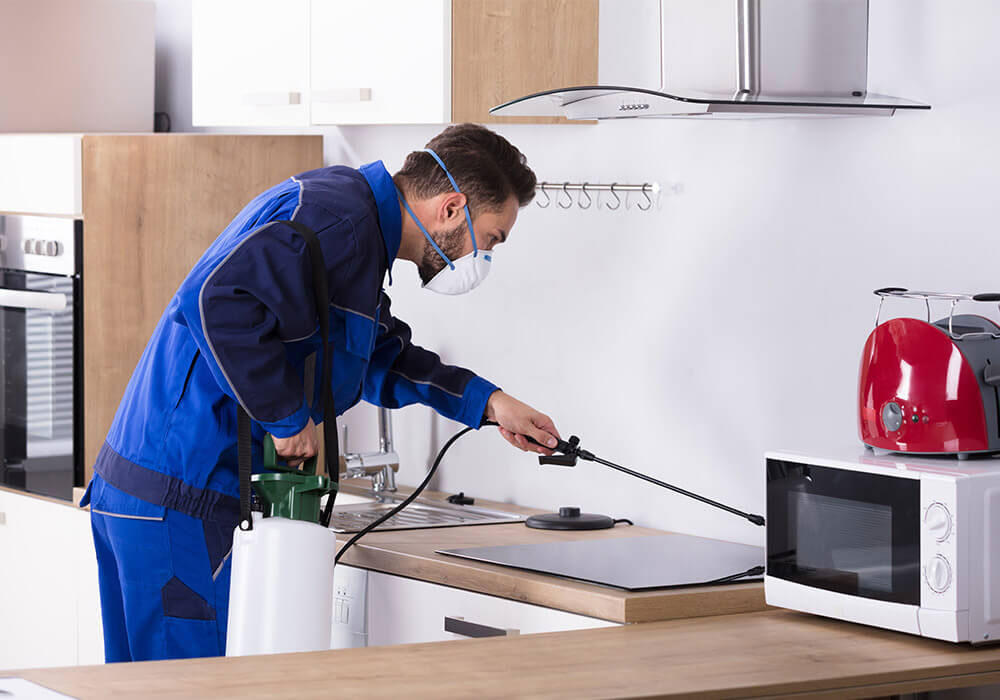If you’re like most homeowners, you take pride in protecting your family and keeping your home safe. But did you know pests can be an unexpected source of danger to both people and property? Pests bring with them a host of potentially serious problems—from structural damage to bacterial infections to the potential for fires due to damaged electrical wiring caused by vermin. That’s why it’s so important that we all learn about pest control and how effective management of these issues can safeguard our homes from harm. In this blog post, we’ll discuss some helpful tips on how to keep your home free from pesky critters, while making sure that people and property remain healthy and safe!

Professional Pest Inspections and Services
To effectively control pests, professional inspections and services are often necessary. A professional pest control service has the technical knowledge and tools to conduct thorough inspections, identify the type and source of pest infestations, and recommend the most effective solutions. Working with locals whether that be pest control in Fairfield, CT, or Sarasota, FL, these professionals have the experience and tools to eliminate your pest problem quickly and safely. They can also help to prevent future infestations by providing advice on the best ways to protect your home from pests.
Health Risks Associated with Pest Infestations
Pests, in addition to causing structural damage, pose serious health risks to humans. Rodents, for instance, are known to carry Hantavirus, Salmonellosis, and Rat Bite Fever, diseases that can be transmitted to humans through direct contact or indirectly through ticks, fleas, and mites that have fed on an infected rodent.
Similarly, cockroaches can spread harmful bacteria like E. coli and Salmonella, exacerbating conditions like asthma and allergies. Mosquitoes, notorious for their disease-spreading capabilities, can transmit Zika virus, West Nile virus, Chikungunya, and Dengue, amongst others. Therefore, controlling pests is not only crucial for maintaining the structural integrity of your home but also for safeguarding the health and wellness of its inhabitants.
Pest Prevention: Where to Start
Proactive pest prevention is the key to maintaining a pest-free home. Begin with ensuring cleanliness in all areas of your property. Pests such as rodents and cockroaches are attracted to food remnants, so always keep your kitchen clean, store food in sealed containers, and promptly dispose of garbage in covered bins. Next, seal any cracks or holes in your home’s exterior through which pests might enter, including gaps around doors and windows.
Additionally, maintain your yard by trimming overgrown vegetation and removing stagnant water sources, which could serve as breeding grounds for pests like mosquitoes. Installing screens on windows and vents can also help keep flying insects out. Regularly check dark, moist areas like basements and attics for signs of infestation—these areas are often attractive to pests. Taking these preventive steps can significantly reduce the likelihood of a pest infestation in your home.

Maintaining a Clean and Tidy Home: A Key to Pest Control
Maintaining a clean and tidy home is one of the most effective ways to prevent pest infestations. Regular cleaning helps to eliminate potential food sources and nesting areas for pests. Consider adopting a cleaning schedule that covers all areas of your home, such as daily sweeping and mopping of floors, weekly deep cleaning of kitchens and bathrooms, and regular decluttering of storage areas.
Be extra vigilant in keeping your kitchen spotless, as it can be a hotbed for pests due to food scraps and moisture. Promptly clean up any food spills, regularly empty the trash, and keep your pantry well-organized with food items stored in airtight containers. Regularly inspect and clean behind appliances where crumbs and grease can accumulate, providing a secret haven for pests.
In conclusion, pest control is an essential part of protecting your home and the people who live in it. Regular professional inspections and services can help identify and eliminate infestations, while preventive measures like keeping a clean and tidy home can significantly reduce the likelihood of pests entering in the first place. Taking these simple steps will ensure that your home remains safe and healthy for many years to come.

